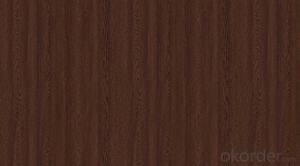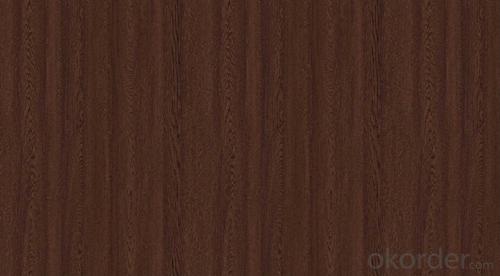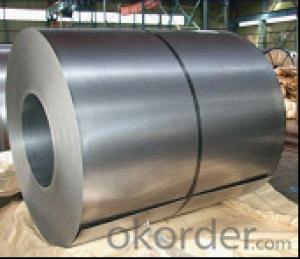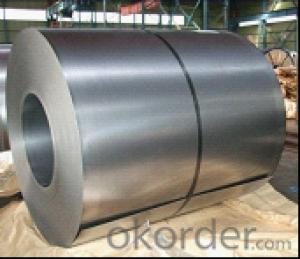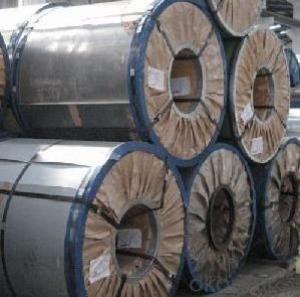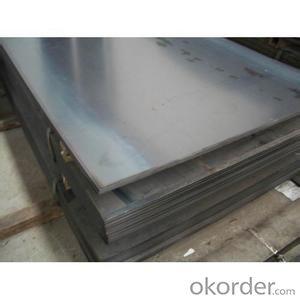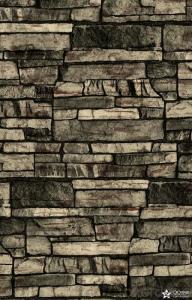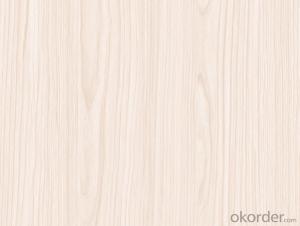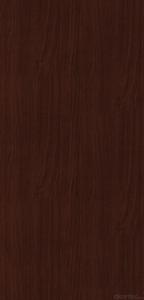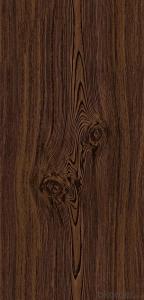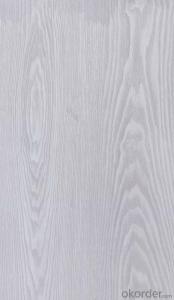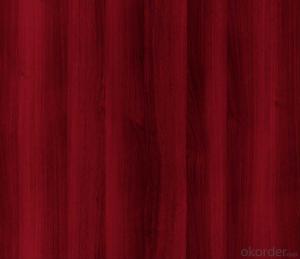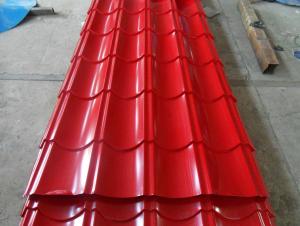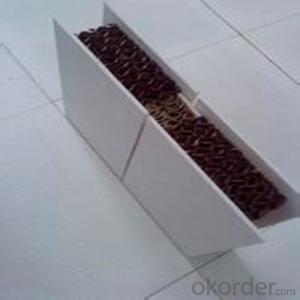color bond surface coating steel plate--XY012
- Loading Port:
- China Main Port
- Payment Terms:
- TT OR LC
- Min Order Qty:
- -
- Supply Capability:
- -
OKorder Service Pledge
OKorder Financial Service
You Might Also Like
Color bond surface coating steel plate :
more than ten years experiences, the products are sold to the domestic city and some international cities we strivc to develop production of color coating steel plate the plating (aluminum )zinc steel. Coil cheickness between 0.6mm and 1.5mm and the width from 600mm to 1250mm and a variety of high durability of color coating steel plate.
the company has multiple layer patterns for customers to choose The company provides products deep processing services ,meet the various needs of customers on board specifications All of out products comply with international quality standards and are greatly appreciated in a variety of different markets throughout the world if you ate interested in any of our products or would like to discuss a custom order please feel free to contact us we are looking forward to forming successful business relationships with new clients around the world in the near future.
We can design the color and thickness according to customers' requirements. The delivery time is only 30 day after you confirm the order.
- Q: Can steel sheets be used for transportation applications?
- Yes, steel sheets can be used for transportation applications. Steel is a popular material in the automotive and aerospace industries due to its high strength, durability, and resistance to corrosion. Steel sheets are commonly used for various transportation components such as chassis, body panels, doors, and structural parts. They provide excellent structural integrity and can withstand heavy loads, making them suitable for vehicles and aircraft. Additionally, steel sheets can be easily formed, welded, and machined, allowing for customization and efficient manufacturing processes.
- Q: How do steel sheets perform in terms of vibration damping?
- Steel sheets perform fairly well in terms of vibration damping. Due to their high density and stiffness, they have the ability to absorb and dissipate vibrations effectively, reducing noise and vibration levels. However, compared to other materials like rubber or polymers specifically designed for vibration damping, steel sheets may not provide the same level of damping efficiency.
- Q: What are the different storage methods for steel sheets?
- There are several different storage methods for steel sheets, depending on the specific requirements and space availability. Here are some commonly used storage methods: 1. Flat storage: This is the most basic method where steel sheets are stored horizontally on a flat surface, such as the floor or metal racks. It is suitable for small quantities or when the sheets are not too heavy. 2. Vertical storage: Steel sheets can be stored vertically by placing them against a wall or by using specially designed vertical racks. This method saves floor space and allows for easy access and identification of different sheet sizes. 3. Cantilever racks: These racks have horizontal arms that extend outward from a vertical column, providing support for steel sheets placed on them. Cantilever racks are ideal for storing long and heavy steel sheets, as they allow for easy loading and unloading using forklifts or cranes. 4. Roll-out racks: These racks have rollers or ball bearings that allow steel sheets to be easily rolled in and out, similar to a drawer. Roll-out racks are useful when frequent access to different sheets is required, as they provide good visibility and easy retrieval. 5. A-frame racks: A-frame racks have angled arms that support steel sheets in a slanted position, resembling the letter "A." This method is suitable for storing large quantities of steel sheets and provides easy access while keeping them organized. 6. Automated storage and retrieval systems (AS/RS): These systems use computer-controlled mechanisms to automatically store and retrieve steel sheets. AS/RS can be designed as vertical lift modules or robotic systems, maximizing storage capacity and efficiency. It is important to consider factors such as sheet size, weight, accessibility, and safety when choosing the appropriate storage method for steel sheets. Adequate measures should also be taken to protect the sheets from moisture, dust, and other environmental factors that could potentially affect their quality.
- Q: Can the steel sheets be easily engraved or etched?
- Yes, steel sheets can be easily engraved or etched using various techniques such as laser engraving or chemical etching.
- Q: What is the difference between a galvanized and aluminized steel sheet?
- Galvanized steel and aluminized steel sheets are both widely used in various industries due to their durability and corrosion-resistant properties. However, there are distinct differences between the two. Galvanized steel sheets are coated with a layer of zinc to protect the underlying steel from rust and corrosion. This process, known as galvanization, involves immersing the steel sheet in a bath of molten zinc or applying a zinc-rich coating through electroplating. The zinc layer acts as a sacrificial barrier, meaning that it will corrode before the steel does, providing excellent protection against rust. Galvanized steel is commonly used in outdoor applications, such as roofing, fences, and automobile parts. On the other hand, aluminized steel sheets are coated with a layer of aluminum-silicon alloy. This process, known as aluminization, involves hot-dipping the steel sheet in a bath of molten aluminum or applying a thin layer of aluminum-silicon alloy through a continuous hot-dip process. The aluminum-silicon coating offers excellent heat resistance and corrosion resistance. Aluminized steel is commonly used in applications where high temperatures are present, such as automotive exhaust systems, heat exchangers, and ovens. In summary, the main difference between galvanized and aluminized steel sheets lies in the type of coating applied to the steel. Galvanized steel is coated with zinc, providing excellent rust protection, while aluminized steel is coated with an aluminum-silicon alloy, providing superior heat and corrosion resistance. The choice between the two depends on the specific requirements of the application, such as the presence of high temperatures or the need for long-lasting rust protection.
- Q: How do steel sheets perform in terms of scratch resistance?
- Renowned for their exceptional ability to resist scratches, steel sheets are widely recognized for their strong and durable nature. This quality makes them highly suitable for a multitude of applications where they may come into contact with objects or surfaces that could potentially cause damage. Moreover, steel sheets possess the capacity to endure regular wear and tear, rendering them particularly suitable for demanding environments with heavy usage. Furthermore, the scratch resistance of steel sheets can be further enhanced by applying coatings or finishes, thereby achieving an even higher level of protection. In summary, the outstanding scratch resistance of steel sheets has earned them a well-deserved reputation as a reliable choice for a diverse range of industrial and commercial purposes.
- Q: How long do steel sheets typically last?
- Steel sheets typically have a long lifespan and can last anywhere from 20 to 50 years, depending on factors such as maintenance, exposure to harsh conditions, and quality of the steel.
- Q: Can steel sheets be used for automotive wheels?
- No, steel sheets are not typically used for automotive wheels. Wheels are usually made from aluminum alloy or magnesium alloy, as these materials provide better strength-to-weight ratio and improve the overall performance and fuel efficiency of the vehicle.
- Q: Can steel sheets be galvanized?
- Yes, steel sheets can be galvanized. Galvanizing is a process of applying a protective zinc coating to steel to prevent corrosion, and it can be done on steel sheets as well.
- Q: What are the different packaging options available for steel sheets?
- Steel sheets can be packaged in a variety of ways, depending on their size, shape, and intended use. Some common packaging options are: 1. Wooden crates: To ensure safe transportation, steel sheets are often packed in sturdy wooden crates. Straps or bands are used to secure the sheets inside the crate and prevent any movement. 2. Steel frames: Another option is to package steel sheets in steel frames, which provide extra protection and stability. This is especially useful for large or heavy sheets, as the frame securely holds them in place during transit. 3. Coil packaging: When steel sheets are in coil form, they are typically wrapped in plastic or paper to protect them from moisture and dust. These wrapped coils are then placed on pallets for easy handling and transportation. 4. Bundles: Steel sheets can also be bundled together using steel straps or bands. This method is commonly used for smaller sheets or when multiple sheets need to be packaged together. Shrink wrap or plastic covers can be added to further secure the bundles during shipping. 5. Custom packaging: Depending on specific requirements or customer preferences, steel sheets can be packaged in custom-designed packaging. This may involve using foam padding or inserts to protect delicate surfaces, or specialized containers for specific applications like food-grade steel sheets. In conclusion, the packaging options for steel sheets are diverse and can be customized to suit different industries and customers. The choice of packaging depends on factors such as sheet size, weight, required protection level, and transportation method.
Send your message to us
color bond surface coating steel plate--XY012
- Loading Port:
- China Main Port
- Payment Terms:
- TT OR LC
- Min Order Qty:
- -
- Supply Capability:
- -
OKorder Service Pledge
OKorder Financial Service
Similar products
Hot products
Hot Searches
Related keywords
